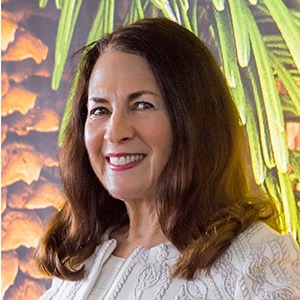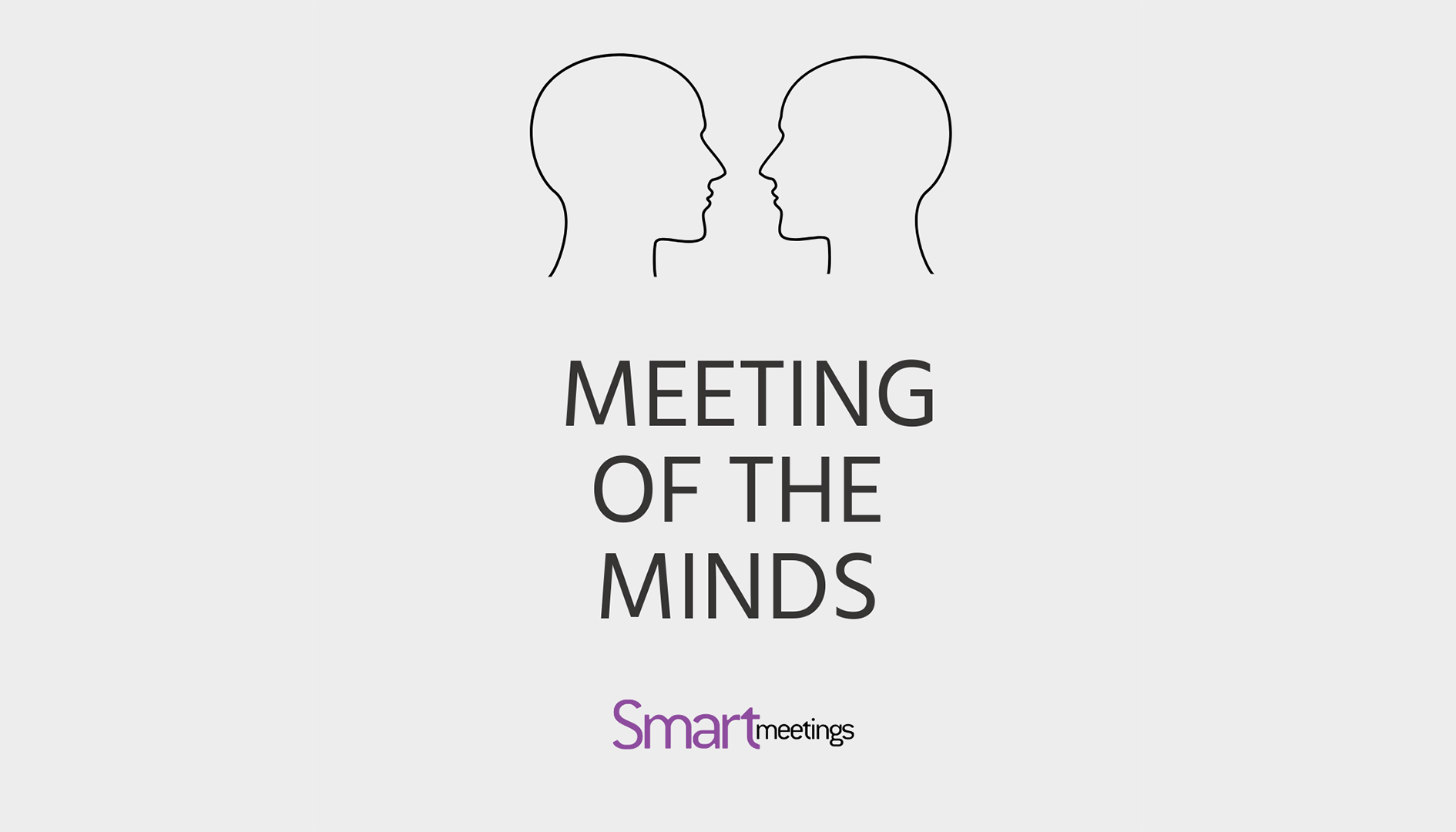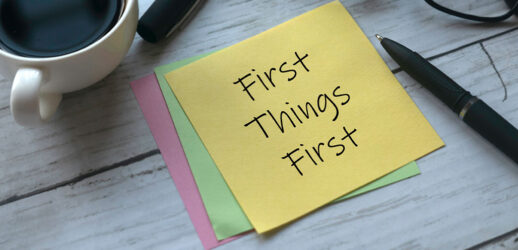In Meetings of the Minds, Smart Meetings brings together two meeting professionals in different stages of their career to discuss a range of hot topics in the industry.
In this discussion, Valerie Ulrich, former vice president of special events and conferences at First Republic Bank and currently a consultant for special events and conferences, and Spencer Glazer, event coordinator at Wolters Kluwer, discuss work/life balance. They went on to dive deep into how the topic fits into remote work, running events in real time and managing heavy workloads and multiple projects.
If you’re interested in this topic, watch the YouTube video of the full discussion.
Defining Work/Life Balance

Smart Meetings: How do you define work/life balance, and why is it important to speak on this topic?
Valerie Ulrich: I define work/life balance as a coordination of the time that you spend working with the time that you take for yourself to do the things that make you happy…Especially in certain industries, the work takes control over our personal lives, and sometimes, there are no boundaries.
Spencer Glazer: Work/life balance is having a perfect in-between for the things that you enjoy doing in your personal life as well as your work, and finding boundaries to keep those things in line. I think right now more than ever, as people are working remote, it’s easier for those things to be blended.
Considering Remote Work

SM: How do you fit work/life balance into working remote?
Glazer: I work fully remote…It’s great to have that flexibility. But my computer is always in my bedroom. I remember when my parents used to go into the office, they would leave their computer there after 5 p.m. and over the weekend…In that respect, that can be a challenge when we think about work/life balance.
Ulrich: I love working from home. It’s my preference for a lot of reasons. I like peace and quiet when I’m working…As you said, Spencer, it gives you a better opportunity to be more balanced, and I believe that it saves a lot of time in getting ready and commuting, and you can take breaks a little differently.
SM: Does your workday end at 5?
Glazer: Our work hours are 9 to 5, but it’s pretty flexible. If you want to take a walk during the day, you can, if your time allows. That is a really nice aspect. But then there’s that other size, of, ‘Well, okay, let me write this quick email or let me just work on this quick project even though it’s 11 p.m.’ It definitely can go back and forth.
Ulrich: Each person needs to work with their own pattern of behavior to determine when to work and when to take breaks. I’m not very good about cutting it off. I feel like it’s important to do my focused work during the times when I’m really sharp, which, for whatever reason, is from about six in the morning until noon. Then I’ll start up again at about four or five.
Read More: Time for Mental Health
Work/Life Balance at Events
Taking Moments of Rest During Events
SM: How do you manage work/life balance at events?
Glazer: I would get back to my room at 11, and work on other projects until late at night, and then have to be up way early in the morning. It was definitely a task to learn to manage that and work on setting boundaries and letting my stakeholders know that, due to being onsite, I might have a delay in response…It can be quite challenging, because that little time at night would be my only personal time, but then it got taken up by all of the other work projects I have. Finding those little moments to call family, catch up with friends on the phone throughout the day to have a five-minute break is really grounding for me.
Ulrich: Well, you’re better balanced than me. You’re correct in saying that we’re always planning the next event. I find that during those program times, especially a conference, we really have to work many extra hours to get everything done. We’re not doing our regular routine, we’re not taking our regular breaks, and we have to work a lot later.
I think that’s one thing about our industry is that we know that during those programs, we have to give up our work/life balance. But then afterwards, we can reward ourselves. When I stay at a conference, I might stay over the weekend at the hotel or spend a few hours at the spa, or go out to restaurants, or just visit and play, refresh and reboot.
Rest and Reboot After Events
Glazer: Definitely afterwards, I make time to rest and reboot myself. But I think during an event, even taking five minutes here and there, just to call my family, is really what works for me to keep that balance in place. But again, that does not make up for, maybe,16-hour days. And we can take the real break afterwards.
Ulrich: Many times, we need all hands on deck. Everybody has to be involved in putting on the linens and the glassware and the centerpieces, and there’s maybe just five minutes before you’re completely set up, and several of the people will see that it’s their break and just walk away. It’s interesting to me that they get their downtime right now, they are doing their work/life balance, but it’s also kind of frustrating.
Creating Boundaries
SM: Does it make it harder to create boundaries for yourself when you’re given nice things, such as meals and rides?
Ulrich: I believe it does, because the message is, ‘We’re expecting you to stay and work more hours, and for that, we are giving you dinner or we’re going to send you a limo.’ That type of situation prevents you from having a better work/life balance.
Glazer: When you look at companies with big offices like Google and Facebook, they have 10 restaurants right there, so you never have to leave. You can just get your food and go back to your desk. There definitely is a lot of glamor around you that they use to keep you at the office.
SM: When it comes to events, in those moments when you really don’t have time to take a break, how do you stay energized?
Ulrich: I’m lucky that I’m in a job that I don’t feel is work. It’s just my life–I make it my life. But I’m happy with that, and it energizes me. I just don’t feel like I’m really working. I want to do it, I’m excited about it, I love it. My mind is always thinking about planning the next thing, and it’s kind of hard for me to divide the two. Although I’m working, I’m really having a great time because I’m with these people that I value so much.
Glazer: The passion really drives us through. I’m fortunate to work with people I really care about, and work well with…It’s like running a marathon. You keep going, and you’re so excited to be there, and you know that there’s a prize waiting for you at the end. And working remote makes you appreciate your team even more when you’re in person.
Balancing Passion With Reasonable Workloads
SM: If you are passionate about your job, does that change how you deal with work/life balance?
Ulrich: I love that people can keep their distance from their work and not take it home. I think that’s a real gift. What I like to do for my boundaries is, first of all, I swim every morning. I do a lot of thinking while I’m swimming, and I know a lot of people aren’t going to call me during that time. Then I go on a walk and take calls. And at least once a week, I like to go to a spa. That is, to me, the best way to relax, because I can’t have my phone or laptop or any work with me, and I have to be quiet.
Glazer: It can sometimes be tricky. It’s not a super natural process, like going to school, when you have a mental space within the classroom, physically. I try to create boundaries, like for me, I log on in the morning and I try to log off at five, when my company’s workday is done…But sometimes, there are things I want to do. For me, knowing that there’s an end project is really exciting…I’m always in the mindset that something might come up tomorrow, so why not work now and get this project done. But after nine o’clock, I really try not to touch anything at all.
A colleague of mine had set in the footer of her email that she might be sending an email late at night, but that doesn’t mean the recipient has to respond right away. It stood out to me because sometimes I’ll get an email and think that it needs to be done right away. This footer is all about being courteous about people’s boundaries. Working during that time may work for the sender, but it doesn’t have to work for everyone else.
Ulrich: We have so many times when we’re emailing or sending a text. It might be the right time that I want to send it, but I’m not expecting somebody to answer it. I feel that most people know they don’t have to respond until it’s their time to respond. We can send those texts and emails whenever it’s our productive time.
Re-Thinking the Eight-Hour Day
SM: How do you compensate for working during those extra hours outside of the typical 9 to 5 in your work/life balance?
Ulrich: I might take a longer break in the day, then make up for that later. I never think about an eight or six or ten hour day. I try to get a good night’s sleep and eat healthy, and I try to find my ways to relax…You owe it to yourself. When people go on vacation, they should send an out of office notification, because I think it’s fair that you don’t respond–you don’t even look at your emails during your vacation time.
The other thing we have to acknowledge is that it’s pretty impossible for us to be really productive for more than eight hours per day. Another thing I’ve learned is that we don’t have to do everything at 100%. I’m a perfectionist, so I’ve always tried to do everything at 100%. Most people don’t notice all those little things that we think are so important. It’s really better to focus on that 80%, and get all that right.
Re-Imagining Productivity
Glazer: I think that sometimes, we’re on multiple different events or projects, sometimes, something only needs 20%, something else needs 100%. It’s about knowing what level of effort something needs. And if you try to put 100% into everything, you’re not going to have any balance.
Ulrich: Another thing I’ve learned is that it’s okay to say no sometimes. When I first started working at First Republic, I said yes to everything, and it’s almost impossible to do everything. I remember once, one day, I was asked to do something and I just couldn’t. I said no, and my boss didn’t care. He said, “Okay, I’ll give it to somebody else.” That was the first time that I learned you can say no, even to your manager.
Saying No
Glazer: Sometimes it can be hard to manage my own event and others where I’m just managing ad hoc tasks. Saying no can be a little daunting, but I know that if I take everything on, my work/life balance is going to go out the window, and my quality of work is also going to go out the window.
I also think it’s really helpful, to maintain that balance, is by asking for a deadline when someone asks me to do something. I can mark it on my calendar when something needs to be done. If something doesn’t need to be done for two weeks, and I know I have all this time, I might save it for during the workday when I’ll have time, and at night, I can have personal time.
Ulrich: I agree. When somebody asks you to do something, ask when they need it. That way you can schedule your time and have your balance. And if the deadline doesn’t work for you, you can ask them to change it, and they often can.
I also think it’s important to feel comfortable asking for help. You shouldn’t be afraid to do so, and you can avoid burnout and overload.
Lean on Your Team
Glazer: Definitely, especially on a team. Having a team can help your work/life balance, because if I’m overwhelmed, someone can help me out. And vice versa, when they’re overwhelmed, I can help them out. Everything goes hand-in-hand. We all have the same goal, so it has to get done somehow.
Valerie, I wanted to ask, is there anything you think is changing the scope of work/life balance in our industry?
Ulrich: Recently, in the past couple of years, I’m finding that management and HR departments are encouraging people to take time off. And recharge. I don’t remember ever healing that until the last couple of years, but I really value that message, and I feel like it’s happening a lot more often. Do you feel that way too, Spencer?
Glazer: I think we all realized, maybe throughout the pandemic, that time off is really important. People’s mentality, their mindset, their quality of work is all better when they have time removed.
SM: It’s interesting that work/life balance is not just about balancing between working time and living outside of work, but also about finding ways to make your working life easier and more manageable, and managing your energy during your work. How do you do this balancing act within your work?
Glazer: I think it comes down to deadline and what’s upcoming. Sometimes I have projects that I don’t need to give my 100% at the moment, and at the same time I have projects that need to be completed tomorrow. Those are the things I’m going to want to exert all the effort and time that I have. Knowing when and where to place that time is super helpful.
Ulrich: A lot of times, it depends on who is asking you to do the task. If our chairman is asking something, we should prioritize that…I think I am pretty good at prioritizing. I can hear what somebody wants and make a determination of when I need to get that done. For events, there are so many things that we have to do, so what’s first, second and third?
To Sum it Up…
Navigating work/life balance, especially when you’re as busy as an event planner, is a tricky task. Ulrich and Glazer found that it’s vital to determine how much energy to put into each task based on deadlines and its level of priority. It’s also important to recognize your own working habits and take breaks accordingly so you can capitalize on your productivity habits. Take moments to recharge where you can, in whichever ways work for you–and don’t be afraid to ask for help or say no when you know you need to.
Want some more Meeting of the Minds?
If you’re interested in this topic and want to learn more, visit our website to read the full discussion transcript, or watch the recorded discussion on our YouTube–tell us what you think about work/life balance in the comments! And stay tuned for the next Meeting of the Minds.
Read More: 12 Ways Meeting Planners Can Achieve Work-Life Balance
This article appears in the January 2024 issue. You can subscribe to the magazine here.




